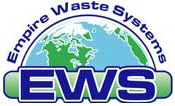
In the high desert region of Northern Nevada, a hidden but critical industry operates behind the scenes, managing the waste generated by a growing population and diverse economy. From the sprawling urban landscapes of Reno to the smaller communities nestled in the mountains, the trash industry plays a pivotal role in maintaining the region’s environmental health and sustainability. In this blog post, we will explore the current state of the trash industry in Northern Nevada, examining its challenges, innovations, and its role in shaping a more sustainable future.
1. Population Growth and Waste Generation:
As Northern Nevada experiences a surge in population, driven by factors like job opportunities and a thriving economy, waste generation has become a significant concern. The increasing demand for goods and services correlates with a rise in the production of waste. This, in turn, puts pressure on waste management systems to evolve and adapt to handle the growing volume of trash.
2. Challenges in Waste Management:
The trash industry in Northern Nevada faces several challenges. One of the primary issues is the need for efficient and sustainable waste disposal methods. Landfills, the traditional endpoint for waste, must be managed responsibly to minimize environmental impact. Balancing the demand for landfill space with environmental considerations is an ongoing challenge for waste management authorities.
3. Innovations in Recycling:
Recognizing the need for more sustainable practices, Northern Nevada has seen a surge in recycling initiatives. From single-stream recycling programs to advanced sorting technologies, communities are investing in solutions to reduce the amount of waste ending up in landfills. Public awareness campaigns have also been launched to educate residents and businesses about the importance of recycling and proper waste disposal.
4. Waste-to-Energy Projects:
To address the energy demands of the region and reduce the environmental impact of waste disposal, there is growing interest in waste-to-energy projects. These initiatives aim to convert non-recyclable waste into energy, providing an alternative to traditional landfill methods. While still in the early stages, such projects hold the potential to contribute significantly to the region’s energy sustainability.
5. Community Involvement and Advocacy:
Local communities are playing a crucial role in shaping the future of the trash industry in Northern Nevada. Grassroots movements, community clean-up initiatives, and advocacy groups are working to raise awareness about responsible waste management. Residents and businesses alike are becoming more conscious of their ecological footprint, prompting a shift towards more sustainable practices.
6. Government Regulations and Policies:
Government bodies are implementing regulations and policies to address waste management challenges. Stricter disposal guidelines, incentives for recycling, and penalties for improper waste disposal are being introduced to encourage responsible practices. These measures aim to create a framework for sustainable waste management while holding individuals and businesses accountable for their environmental impact.
Conclusion:
The trash industry in Northern Nevada is at a crucial juncture, grappling with the consequences of rapid population growth and increased waste generation. However, the region is not without hope. Through a combination of innovative solutions, community involvement, and government support, Northern Nevada has the potential to lead the way in establishing a model for sustainable waste management. As the trash industry continues to evolve, it is clear that the collective efforts of residents, businesses, and policymakers will shape the future of waste management in this dynamic and environmentally conscious region.
.
